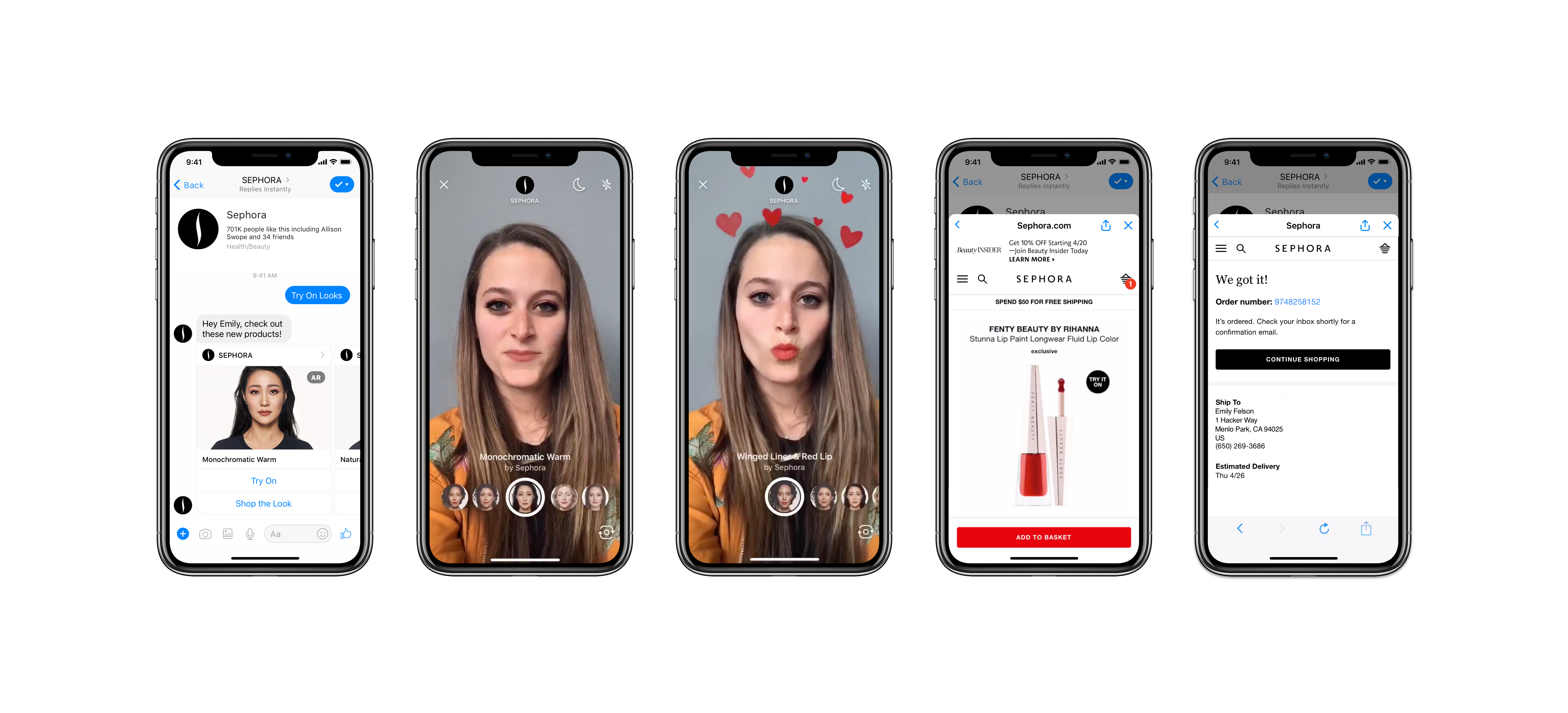 APPS
APPS
 APPS
APPS
 APPS
APPS
A lot of people weren’t sure when Facebook Inc. opened up its Messenger platform two years ago to businesses that the 1.3 billion people using the messaging system would want that kind of company in their most intimate app. No matter: The social network today is plunging ahead to give business even more tools.
The first new capability announced at the opening of Facebook’s F8 developer conference in San Jose, California, enables brands to incorporate augmented reality into their Messenger experiences. AR involves putting virtual objects into physical-world experiences via smartphones and other devices.
Now, businesses will be able to use Facebook’s Camera Effects Platform to prompt people to open Messenger’s camera function, which then will be loaded with filters and AR effects for that brand. Then people can share an image or video to their “Story” or ephemeral post, to a group or a one-on-one conversation, and save it to their camera roll.
What’s the point? David Marcus, vice president of Messenger, said in a blog post that with many products, people need to “visualize a product … without ever having to set foot in a store” — though he doesn’t mention a little company up in Seattle that has done pretty well selling stuff online without AR or a messaging app.
Anyway, the AR effects feature, the latest addition to Facebook’s AR studio, is only in a closed beta test for now with four companies: ASUS, Kia Motors Corp., Nike Inc. and Sephora (pictured). The French cosmetics company, for instance, allows people to try on new makeup and share what it looks like with friends.
Facebook views this as an extension of “visual messaging” that also includes emojis, of which it said people share almost 1.7 billion a day, and animated GIFs, 18 billion of which were shared last year in Messenger. There’s a waitlist now for businesses interested in trying it out.
The other new Messenger feature is that buyers and sellers in Facebook’s Marketplace will be able to communicate across language with suggestions for translations from the company’s virtual assistant M. For now, it’s just between English and Spanish for conversations in the U.S., but Marcus said that as the company learns more about how translations are working in Messenger, it plans to expand to other languages and countries.
It’s still not clear how much people really want to interact with businesses, be it humans or bots, on their messaging apps. But today Facebook claimed that Messenger has seen a lot of growth. It said more than 300,000 bots are active on Messenger, with more than 8 billion messages exchanged per month between businesses and people — four times the number since last year. And some 200,000 developers are “actively” building Messenger experiences.
Facebook has been steadily trying to boost Messenger’s business chops. In November, it began offering a new way for companies to interact with customers who prefer communicating via chat, introducing Customer Chat, a plugin that allows organizations to embed Messenger into their own websites.
Support our mission to keep content open and free by engaging with theCUBE community. Join theCUBE’s Alumni Trust Network, where technology leaders connect, share intelligence and create opportunities.
Founded by tech visionaries John Furrier and Dave Vellante, SiliconANGLE Media has built a dynamic ecosystem of industry-leading digital media brands that reach 15+ million elite tech professionals. Our new proprietary theCUBE AI Video Cloud is breaking ground in audience interaction, leveraging theCUBEai.com neural network to help technology companies make data-driven decisions and stay at the forefront of industry conversations.